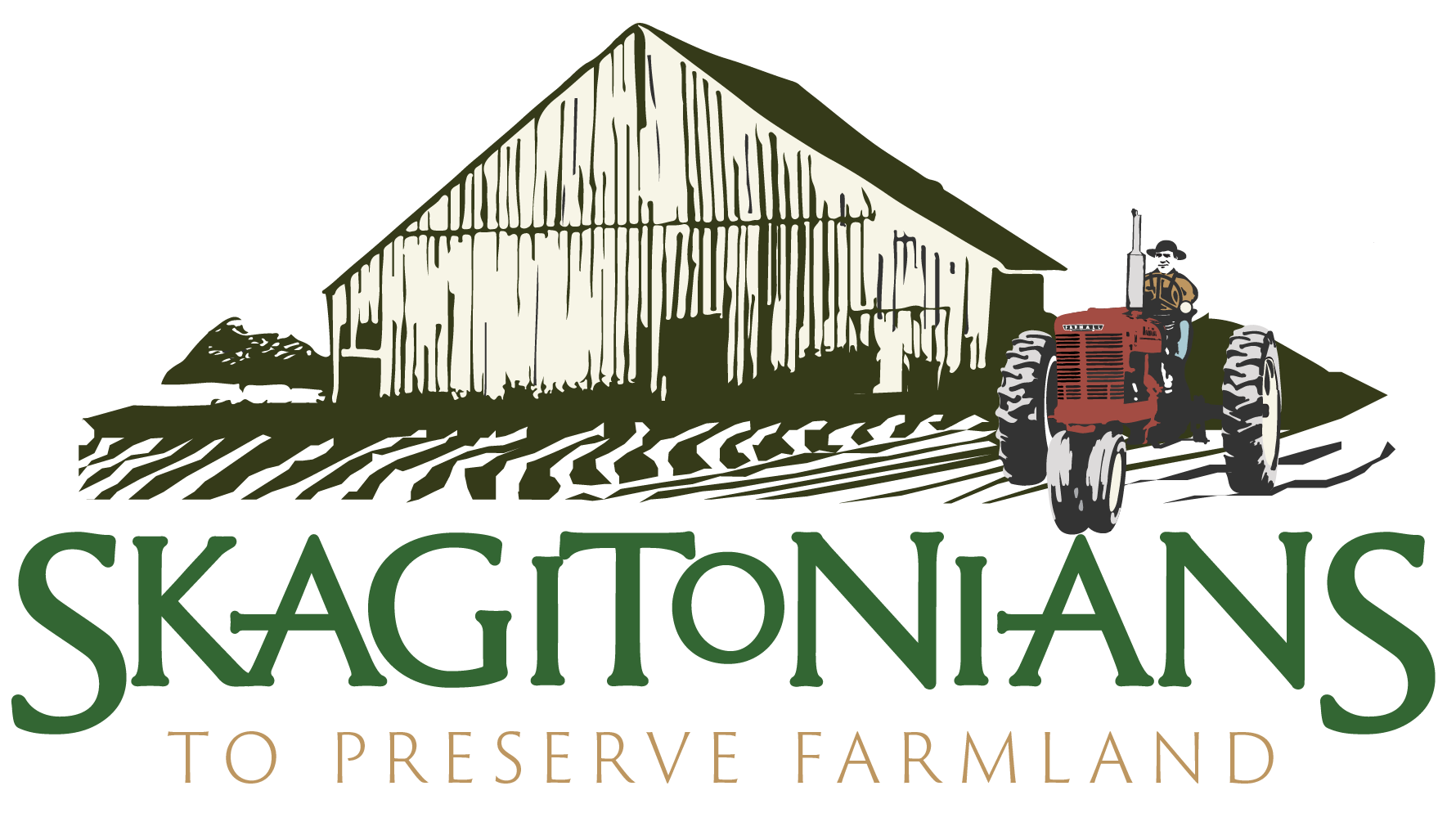Boldly Growing Community
Planting Values
At Boldly Grown Farm in Bow, Washington, they raise more than vegetables. Planting their values in fertile soil, they are raising a healthy community.
Jacob Slosberg stepped onto a clear path in his teenage years in Seattle, when a trip to Costa Rica inspired him to become a farmer. Amy Frye grew up running around on her grandparents’ farm next door to where she lived, a formative experience.
Together, doing something that aligned with their family’s values has been a high priority, and farming in Skagit Valley furnishes many opportunities for this.
With supportive parents nearby and eager little kids following them around the farm, they are raising a lot of goodness.
Growing Boldly Grown Farm
Amy and Jacob have owned their 58-acre, certified organic and Salmon-Safe farm on Ershig Road along the Samish River since 2021, but they started farming on an acre at Viva Farms in 2015.
Before that, they gathered experience at the Centre for Sustainable Food Systems organic farm at the University of British Columbia, where they met.
With land prices prohibitively high in Canada, they relocated to Skagit where Jacob started working at Osborne Quality Seeds and they launched Boldly Grown Farm.
“We were always interested in doing wholesale as a starting point,” Amy says, “which is not, I would say, the most common first path for smaller farms.
I feel like a lot of small, mixed vegetable farms start with kind of a trifecta of CSA, farmers’ markets, restaurant sales.”
Having worked on direct marketing and sales at the UBC organic farm, Jacob and Amy knew they wanted to do something different with their own operation.
Besides aiming for wholesale markets, Amy and Jacob also concentrated on organic fall and winter vegetables, a pragmatic environmental and market decision.
Skagit’s mild climate allowed them to extend the season, growing winter squash, carrots, beets, and more.
Not wanting to negotiate succession plantings, harvest, and sales nearly simultaneously, especially when starting out, they chose crops that would allow them to grow, harvest, and sell sequentially.
Since starting in 2015, Boldly Grown Farm has expanded.
Last year, they sold produce all 52 weeks of the year, including fresh and stored vegetables.
Their first year, they had a CSA program with twelve members; last year, they served 275. They just added a year-round farmstand, too.
“The local community is super excited,” Amy says. “It seems like it’s really been filling a need in the area.”
Although direct sales—the CSA and farmstand—has increased, they still direct the majority of their crops to wholesale markets.
These customers, such as the Organically Grown Company and the Puget Sound Food Hub, appreciate Boldly Grown’s wholesale priorities, rather than coming to wholesaling as an afterthought.
Shifting Systems
In college and graduate school, Amy thought deeply about food systems, especially after reading a book, The Farm as Natural Habitat.
This book helped Amy realize how farming could be used to enhance environmental values.
Preserving farmland, especially on the urban edge, has been a focus ever since, and Skagit is an excellent place to make a difference given its location and existing agricultural services.
She and Jacob brought to Boldly Grown Farm firm commitments to improve the food system as a way to improve other systems.
“I think our focus . . . is the full range of sustainability—economic, social, environmental,” says Amy.
“We’ve grown pretty aggressively and been fairly mechanized with this vision of being at a larger scale in mind because we want to make an impact in the food system.”
Most organic purchases occur in grocery stores, for instance, so they thought wholesale presented the route to make the biggest difference.
“We had the most room to move the needle” with wholesale, Amy explains. “Impact has been our driver, which is more than food.”
For example, they have been paying overtime to their employees to employees putting in more than 40 hours per week years before the state requirement kicked in.
Overcoming Obstacles in Community
No farming path is easy, of course. Boldly Grown Farm has focused on the financial side of its business, focusing strategically on debt and growth.
“It’s absolutely key to success,” says Amy, while acknowledging, “no one gets into farming because they’re excited about looking at spreadsheets.”
Close attention to markets, risk, and projections all help minimize the chances for unexpected problems.
Finding property for the type of farm they wanted took years, too. They have transformed an old dairy farm, which has been quite a project.
They had to gut and rebuild their house, while deconstructing and salvaging several dairy barns on the property.
Financing programs designed to help farmers get started can be too slow. Jacob and Amy feel privileged to have made it work with family assistance, but they know the current system presents challenges.
“The bright side,” Amy says, “is it’s made me really passionate about being involved in these kind of issues that deal with farmland viability, farming, farmer access.”
This positions them well. “Being involved in the wider ag community is something that’s really important to us, because none of us operates in a vacuum.”
“As farmers, we’re all in it together,” Amy explains. “We wouldn’t be here without the agricultural infrastructure that is made possible by the other farms. . . .
We feel super fortunate to farm in Skagit, and it does feel a bit like we won the lottery in terms of being able to buy a farm here.”
Skagit community members are also lottery winners by having Boldly Grown Farm as part of this area, growing good food and looking out for the greater good.
Story and photos by Adam M. Sowards: info@skagitonians.org

